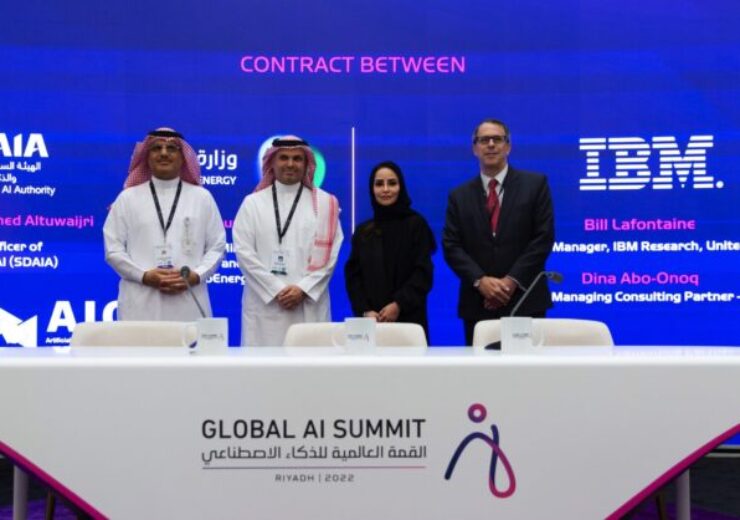The trio of Saudi Data and Artificial Intelligence Authority, IBM, and the Saudi Arabia Ministry of Energy will employ AI technology for the detection and mapping of carbon emissions across the country with the ultimate goal of reducing them

Saudi Arabia taps IBM to use the latter’s AI expertise for driving its sustainability initiatives. (Image credit: Global AI Summit)
IBM has signed a contract with the Saudi Data and Artificial Intelligence Authority (SDAIA) for driving the use of artificial intelligence (AI) in the carbon capture and industrial domains across Saudi Arabia.
The agreement between the parties was announced during the second Global AI summit in Riyadh, Saudi Arabia.
According to IBM, the first use case under it will be in partnership with the Ministry of Energy in Saudi Arabia.
The trio of SDAIA, IBM, and the Ministry of Energy will employ AI technology for the detection and mapping of carbon emissions across the country with the ultimate intention of reducing them.
IBM consulting Saudi Arabia managing partner Dina Abo-Onoq said: “Using multiple satellites and different types of imaging technologies, we will train an AI model to recognize and pinpoint different forms of gas across the entire country. By doing so, this will help with earlier and better visibility of the problem which has not been possible with conventional measurement approaches.”
Under the terms of the overall agreement, IBM will collaborate with SDAIA for identifying high value applications of AI and machine learning (ML) for solving challenges in private and public sector organisations in Saudi Arabia.
The focus of the partnership will be on supporting Saudi Arabia’s sustainability and industrialisation goals.
National Center for AI CEO Majid Al-Tuwaijri said: “This agreement with IBM will contribute to creating opportunities by addressing key challenges in circular carbon economy, petrochemical and industrial domains, through the development of innovative solutions in the field of data and artificial intelligence, and the exchange of shared experiences and investment opportunities in this vital area to support achieving the goals of Vision 2030.”
Saudi Arabia is pursuing a target of achieving net zero in emissions by the year 2060 and to support the global initiative to reduce emissions.
The country is building new cities and infrastructure such as the Red Sea and NEOM, which are being designed by considering sustainability objectives.


